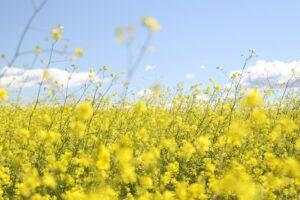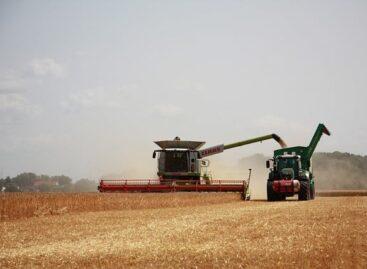Hungarian rapeseed can rewrite its future: this is how its cultivation can be profitable again
A few years ago, rapeseed was in its golden age in Hungary: in 2018, it was grown on more than 330 thousand hectares, and the harvested crop exceeded 1 million tons. However, the situation has changed a lot since then. With the continuous decrease in the sown area, winter rapeseed is now sown on barely 130 thousand hectares in our country. Despite the decline, however, rapeseed remains one of the most profitable arable crops – it’s just that we need to approach it differently than before – writes Agrárszektor.
What is behind the decline?
 There are several factors behind the decline. Climate change, the shrinking supply of pesticide active ingredients, yield fluctuations and hectic market conditions have all contributed to many farmers giving up growing rapeseed. However, according to the 2019–2023 data of the Institute of Agricultural Economics, rapeseed is still in the top 3 in the profitability ranking of arable crops. In other words, production can still be profitable today with the right technology and variety selection.
There are several factors behind the decline. Climate change, the shrinking supply of pesticide active ingredients, yield fluctuations and hectic market conditions have all contributed to many farmers giving up growing rapeseed. However, according to the 2019–2023 data of the Institute of Agricultural Economics, rapeseed is still in the top 3 in the profitability ranking of arable crops. In other words, production can still be profitable today with the right technology and variety selection.
A plant that gives more than we might think at first
The true value of rapeseed lies not only in its selling price – which has been stable around 500 euros per ton in recent times – but also in what it offers in crop rotation. The increased yield in the case of follow-up crops, the savings in nutrients, and the lower costs of plant protection and soil cultivation all increase the profitability of rapeseed. Taking these advantages into account, the economic position of rapeseed becomes even more attractive.
Innovation is the key to survival
RAPOOL Hungária Kft. – the only seed breeder specializing exclusively in rapeseed – the future of rapeseed production cannot be imagined without new generation hybrids. Márk Molnár, the company’s product developer, highlighted that modern hybrids not only have better nitrogen utilization and broad disease resistance, but they can also replace some of the pre-harvest interventions, for example, with varieties resistant to run-off, the use of adhesives or desiccants can be omitted in many cases.
RAPOOL also focuses on sustainability: the seeds they sell contain an increasing proportion of biologically derived coating material, thus reducing the environmental impact.
Related news
Dramatic decrease in rapeseed area in Hungary
🎧 Hallgasd a cikket: Lejátszás Szünet Folytatás Leállítás Nyelv: Auto…
Read more >Despite the rainy weather, the Hungarian fields have a good harvest
🎧 Hallgasd a cikket: Lejátszás Szünet Folytatás Leállítás Nyelv: Auto…
Read more >Agrometeorology: the sap circulation of early fruits started in the mild weather
🎧 Hallgasd a cikket: Lejátszás Szünet Folytatás Leállítás Nyelv: Auto…
Read more >Related news
How does the forint exchange rate affect consumer prices?
🎧 Hallgasd a cikket: Lejátszás Szünet Folytatás Leállítás Nyelv: Auto…
Read more >HELL CITY has arrived, led by Michele Morrone
🎧 Hallgasd a cikket: Lejátszás Szünet Folytatás Leállítás Nyelv: Auto…
Read more >Two million people have already voted, so 57 million forints will be given to locals in 125 settlements, courtesy of Tesco
🎧 Hallgasd a cikket: Lejátszás Szünet Folytatás Leállítás Nyelv: Auto…
Read more >








